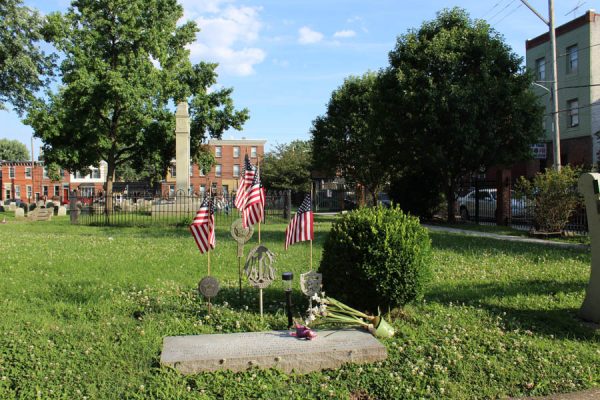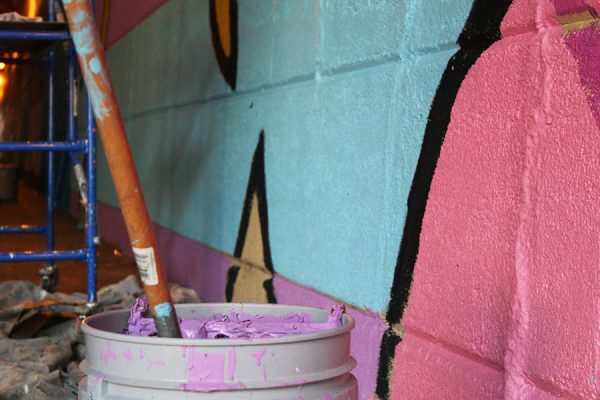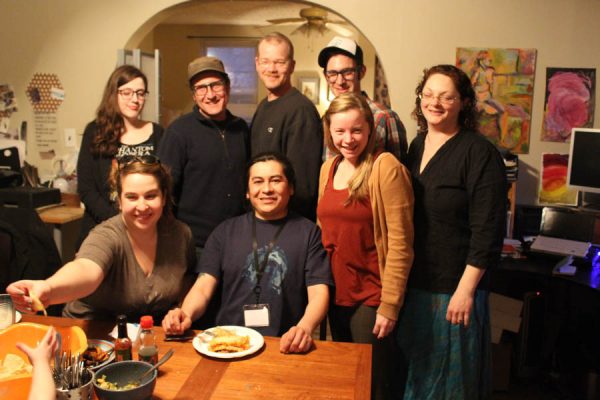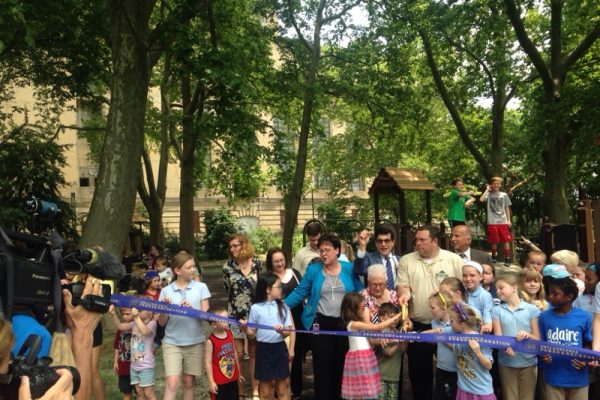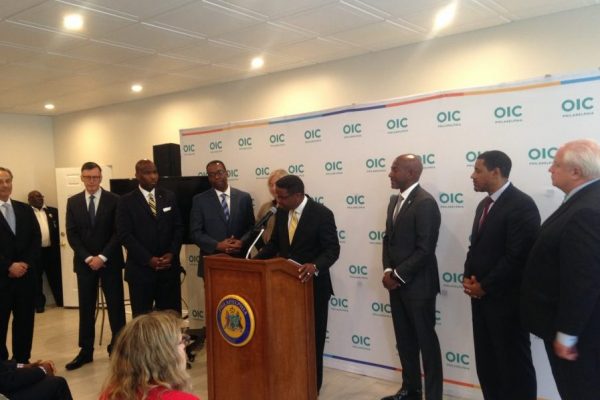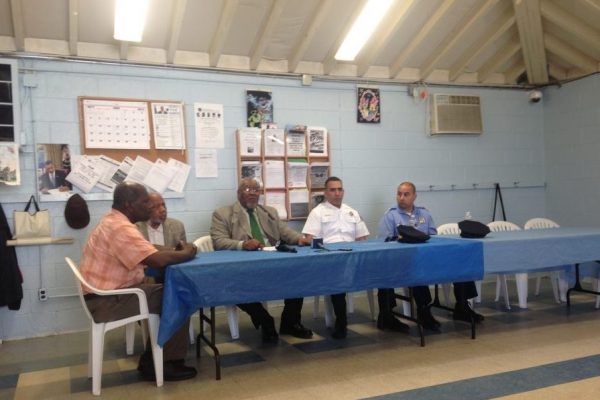CCP Students Present Soda Tax Survey Results for City Officials
For the past month, Community College of Philadelphia (CCP) students have surveyed 1,320 Philadelphia residents aged 14 and up.
The topic? The City’s sugary beverage tax. And this Monday, they presented their findings to city officials, fellow students and professors in a second-floor lecture hall in The Center for Business and Industry on CCP’s Spring Garden campus.
The survey was comprehensive, asking the basic questions, like if people knew about the tax, and more advanced ones, like how much soda they consume per day. Perhaps the most significant result, however, was that 64 percent of those surveyed did not support the tax.
The lecture began with Deputy Mayor for Policy and Legislation Jim Engler, who explained the purpose of the tax. The funds generated from it would benefit three areas: PreK programs, community schools and the Rebuild initiative.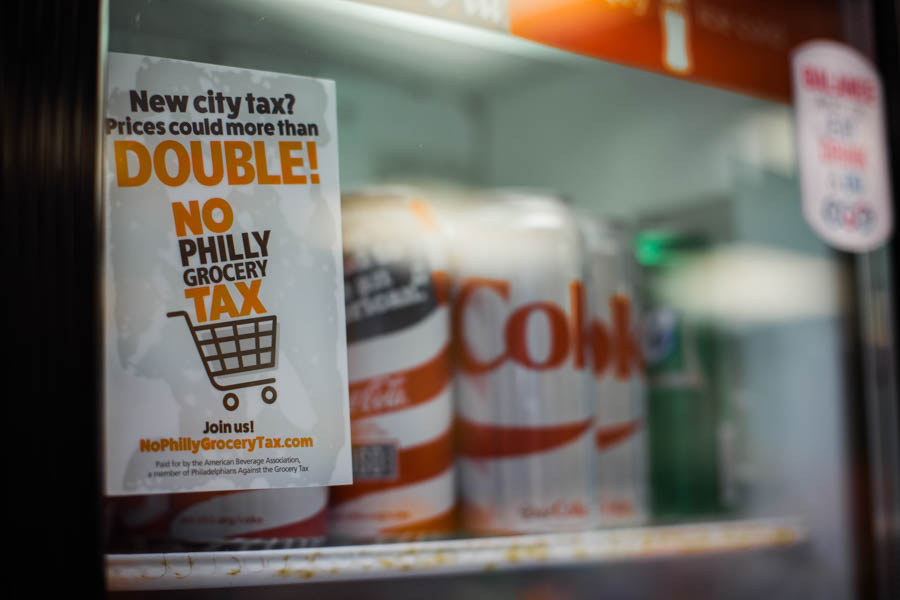
Engler said the sugary beverage tax, pending litigation in the state’s Commonwealth Court, should provide resources to help fix recreation centers, libraries and playgrounds.
“We, as a city, haven’t invested in that infrastructure as we should have,” he said.
Engler added that city bonds to initially fund Rebuild have been held until a decision is reached in Harrisburg, along with most of the William Penn Foundation’s $100 million grant. The tax was deemed legal in the city’s Court of Common Pleas in December, the Inquirer reported.
David Gould, deputy director of community engagement and communications for Rebuild, said $4.8 million of the William Penn Foundation’s grant is for start-up costs. The rest of it is being held up.
“We won’t issue bonds until the court case has been fully resolved and we know we will have the funding stream to repay the bonds,” Gould said.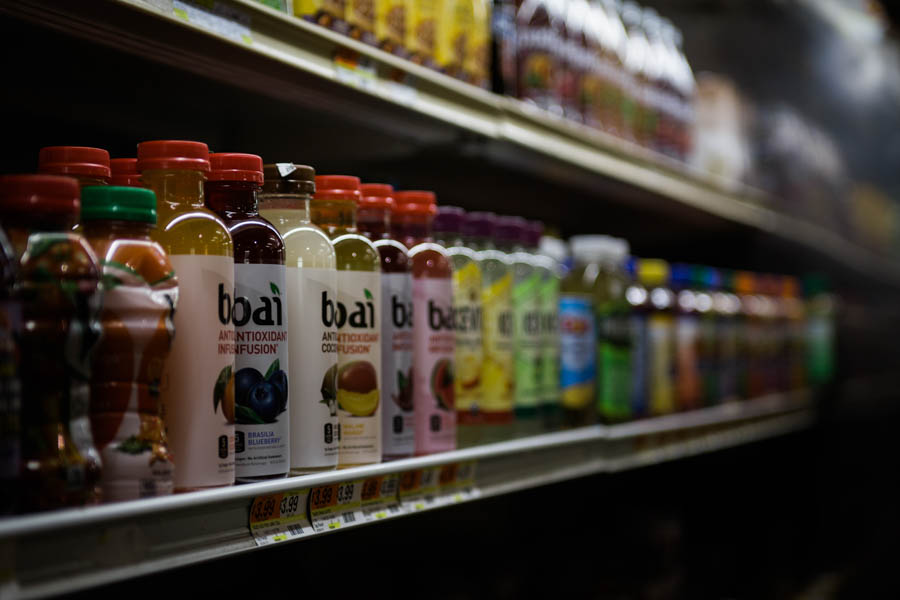
After Engler finished his portion, CCP sociology professor Richard Frei led a discussion about his students’ survey about the tax. He said that while most of the responses implied that people didn’t support the tax and thought there should be alternatives to paying for PreK and other programs mentioned, that the survey was limited in scope.
The results skewed toward more heavily female: 65 percent of respondents versus 53 percent of the Philadelphia population. Additionally, only 11 percent held at least a bachelor’s degree, versus 25.4 percent of the city population.
Frei did, however, concede that he and his students were concerned about a lack of knowledge from people they talked to about the tax. Ninety-two percent of those surveyed said they knew about it, but only 46 percent knew that it was 1.5 cents per every ounce.
After students finished explaining their findings, audience members asked questions about the tax to Engler and other students. Most of them were directed toward the deputy mayor.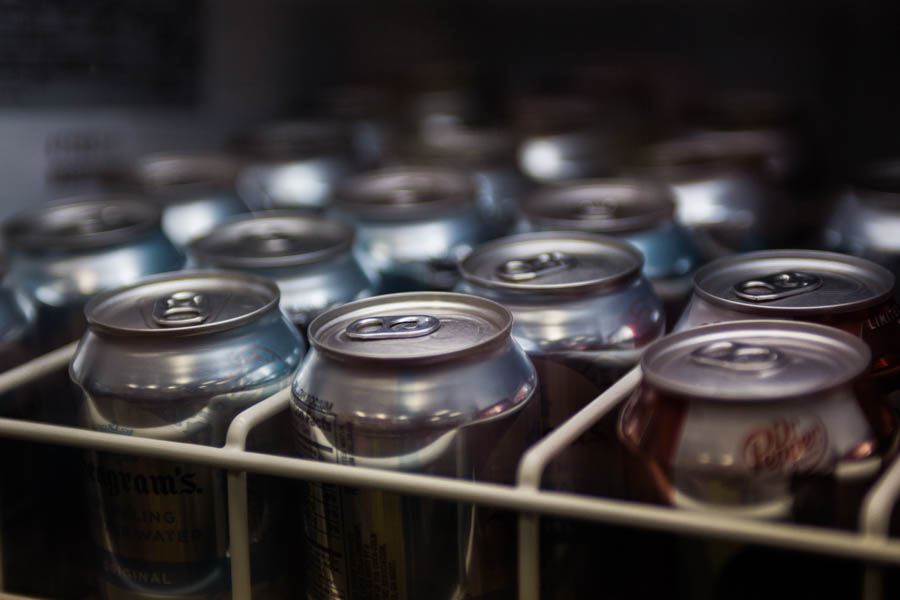
One mentioned there had been rumors about the tax being used for solving the pension crisis in Philadelphia — some media outlets estimate the pension debt to be as high as $6 billion. Engler said the tax won’t be used for this issue due to how the city planned the programs that will benefit from the tax.
Some argued the tax is regressive, including Frei. Engler said the distribution from distributors to consumers is not just dependent on one tax.
“There’s price changes all along the distribution line that contribute to the final cost on the shelf,” he said.

